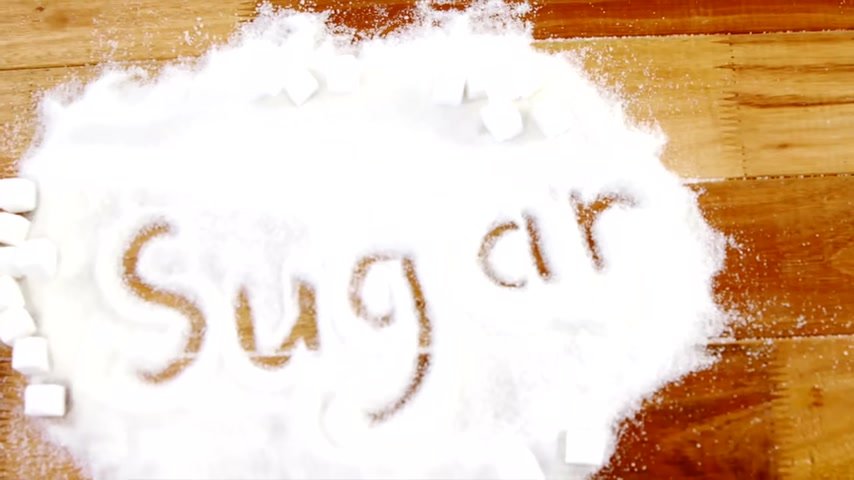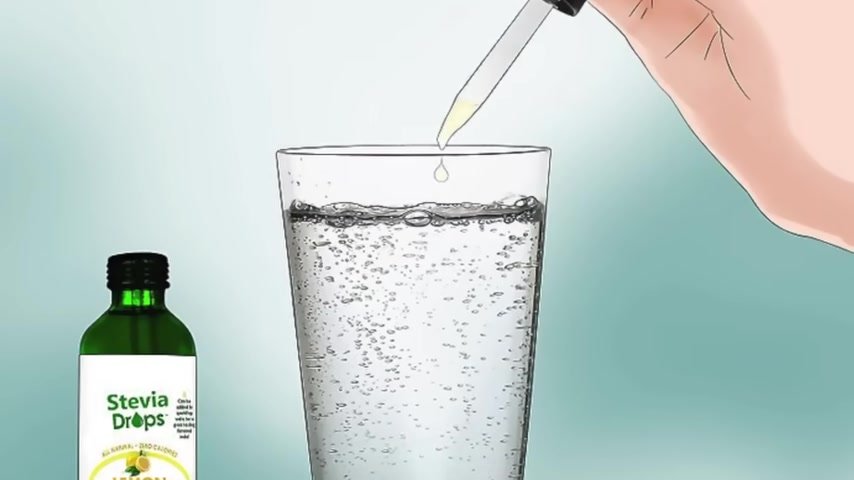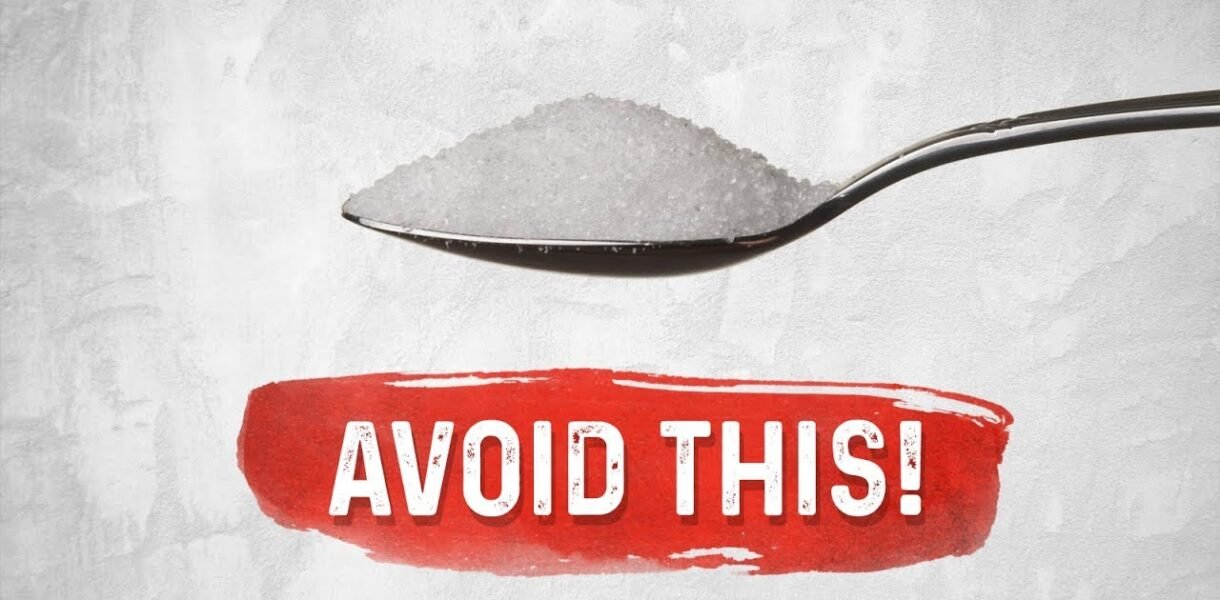Table of Contents
Discover the hidden dangers of certain sugar alcohols and how they can derail your weight loss efforts. Learn which ones to avoid for better results.
When it comes to weight loss, the role of sugar alcohols is often shrouded in mystery. These low-calorie sweeteners may seem like a healthier alternative, but the truth is much more complex.
In this eye-opening article, we’ll unveil the surprising secrets about the worst sugar alcohols for weight loss and provide you with the knowledge to make informed choices for your health and fitness. Prepare to be enlightened and empowered to achieve your weight loss goals.
What are Sugar Alcohols?

today , we’re gonna talk about the absolute worst sugar alcohol .
Now the first thing you need to know is that sugar alcohols are not alcohol .
It has nothing to do with alcohol .So that’s 1 thing .
They’re basically low calorie sweeteners , that don’t get totally absorbed .
The Glycemic Index of Sugar Alcohols

There’s something called the glycemic index , which basically is things that you consume that spike the blood sugar .
The higher on the scale , the worse the spike in blood sugar .
The lower the scale , the less the effect on blood sugars .
So we want a 0 effect , if possible on the glycemic index as being a good sweetener .
Erythritol will give you a 0 effect .
So it has , it does not spike your blood sugars at all .
| Sugar Alcohol | Glycemic Index |
|---|---|
| Erythritol | 0 |
| Xylitol | 13 |
| Sorbitol | 9 |
| Isomalt | 9 |
| Lactitol | 6 |
| Mannitol | 0 |
| Maltitol | 52 |
Maltitol has the highest glycemic index of 52 and should be avoided as it can spike blood sugar levels. Erythritol and xylitol are preferred options with little to no effect on blood sugar.
Stevia, monk fruit, inulin and low glycemic sugar alcohols are recommended natural sweetener alternatives. Aspartame, saccharin and sucralose should be avoided due to potential negative health effects.
Some people have a lot of bloating .
Sometimes people don’t like this because it’s very cold .
It gives a really cold , sensation , but it’s in used in a lot of different things .

Xalitol is 13 . So that’s pretty low .That’s the 1 I like . So it it’s not 0 .
It has a slight effect .
If you’re having just a small amount , it’s gonna be okay .
But just make sure that anytime you’re doing these , it’s a , organic or non GMO , product .
Sorbitol is 9 .That’s pretty low . Isomalt 9 .Lactitol 6 . And mannitol is 0 .
Certain doctors use this for glaucoma .
They will inject you to actually help intracranial pressure as well .
I don’t actually recommend this 1 even though it’s 0 .
Summary
The glycemic index ranks how much a food increases blood sugar levels. Erythritol has no effect while maltitol has a high index of 52 and significantly raises blood sugar.
The Worst Sugar Alcohol

But the worst 1 is maltitol .
There’s a glycemic index of 52 .
I mean , table sugar is 62 or 63 . So this is crazy high .
So this is gonna spike your blood sugars big time .
So maltitol is the 1 that you want to avoid .
And also there’s a bunch of other ones that I didn’t list as well , but I’m just kinda giving the basic ones .
Summary
Maltitol is the worst as it has a high glycemic index of 52 and will spike blood sugars much like table sugar. It should be avoided.
Other Sugar Alcohols and Sweeteners to Consider
And of course , I’m assuming you already know to avoid the artificial sweeteners like aspartame , which comes as equal or nutraSweet or saccharin , which is sweet and low or sucralose , which is Splenda .
So I’m assuming , you know , you already know that these are not very good .
They create problems with your microbiome , your , microbes , your friendly bacteria in your gut .
They create fluid attention .
They’re linked to insulin resistance , a lot of other issues .

Stevia is a really good sweetener .Monk fruit is good .Inulin is a fiber .
A lot of people are using that .
Sometimes you might get too bloated if you have too much .
So it’s always a balance of trying to find a sweetener that is very similar to sugar that doesn’t have an aftertaste .
That doesn’t affect the blood sugars , but then doesn’t give you the bloating , the gas , and the diarrhea .
So different people react differently with different sweeteners .
So you just have to test it out and see what works good for you .
Summary
Stevia, monk fruit and inulin are recommended natural alternatives. Artificial sweeteners like aspartame and sucralose can harm gut health and have other negative health effects
key Points
- The Glycemic index is the list of things that you consume that spike the blood sugar, the higher the scale the worst the spike in blood sugar, and the lower the scale the less the effect. He also talks about what artificial sweeteners to avoid.
- Artificial sweeteners will create problems with your microbiome, friendly bacteria, and gut could cause fluid retention, and are linked to insulin resistance and a lot of other issues.
Sugar Alcohol Sweetener:
- Erythritol – 0 glycemic index and it does not spike the blood sugars at all.
- Xylitol – 13 glycemic index has a slight effect when consume in small amounts.
- Sorbitol – 9 glycemic index
- Isomalt – 9 glycemic index
- Lactitol – 6 glycemic index
- Mannitol – 0 glycemic index used in glaucoma and would help intracranial pressure
- Maltitol – 52 glycemic index and would spike the blood sugars. This sweetener is the one you must AVOID.
AVOID these Artificial Sweeteners:
- Aspartame (Equal, nutra Sweet)
- Saccharin (Sweet n’ Low)
- Sucralose (Splenda)
Good to Consume Sweeteners:
- Stevia
- Monk Fruit
- Inulin
FAQ
Are sugar alcohols bad for weight loss?
Sugar alcohols can have a mixed impact on weight loss. While some sugar alcohols like xylitol and erythritol are generally considered safe and may even have benefits for weight management, others like maltitol can be problematic. Maltitol in particular has a higher glycemic index and can spike blood sugar levels, potentially hindering weight loss efforts. It’s important to be mindful of the type and amount of sugar alcohols consumed when trying to lose weight.
What is the most unhealthy artificial sweetener?
Among artificial sweeteners, aspartame is often considered the most controversial and potentially unhealthy option. Some studies have linked aspartame to potential side effects like headaches, mood changes, and even increased risk of certain health conditions. In contrast, sweeteners like stevia, monk fruit, and sugar alcohols like erythritol are generally viewed as safer and more health-conscious alternatives.
Is sugar alcohol worse for you than sugar?
The impact of sugar alcohols compared to regular sugar can vary. While sugar alcohols are often lower in calories and may have a smaller effect on blood sugar levels, they can also cause digestive issues like bloating, gas, and diarrhea in some people, especially when consumed in large amounts. In moderation, sugar alcohols may be a better choice than regular sugar, but they are not necessarily a free pass to consume large quantities without potential consequences.
Which artificial sweeteners cause weight gain?
Some artificial sweeteners, particularly those with a higher glycemic index like maltitol, have been associated with potential weight gain. This is because they can still trigger insulin release and blood sugar spikes, which can lead to cravings and overeating. Sweeteners like aspartame and sucralose have also been linked to potential weight gain in some studies, though the evidence is not conclusive. In contrast, low-glycemic sweeteners like stevia, monk fruit, and erythritol are generally considered more weight-friendly options.
Is sugar alcohol bad for weight Loss
The impact of sugar alcohols on weight loss can be mixed. Some sugar alcohols, like xylitol and erythritol, are generally considered safe and may even have benefits for weight management, as they are low in calories and do not significantly impact blood sugar levels. However, other sugar alcohols, such as maltitol, can have a higher glycemic index and may not be as ideal for weight loss efforts. It’s important to be mindful of the specific type and amount of sugar alcohol consumed when trying to lose weight.
How much is too much sugar alcohol
There is no one-size-fits-all answer, as the amount of sugar alcohol that is considered “too much” can vary depending on the individual and the specific sugar alcohol. Generally, it’s recommended to limit sugar alcohol intake to 10-15 grams per day, as consuming larger amounts can lead to digestive issues like bloating, gas, and diarrhea. It’s important to pay attention to your body’s response and adjust your sugar alcohol consumption accordingly.
Sugar alcohol examples
Some common examples of sugar alcohols include:
- Xylitol
- Erythritol
- Sorbitol
- Mannitol
- Maltitol
- Isomalt
- Lactitol
These sugar alcohols are often used as low-calorie sweeteners in various food and beverage products, as well as in some oral care products.




